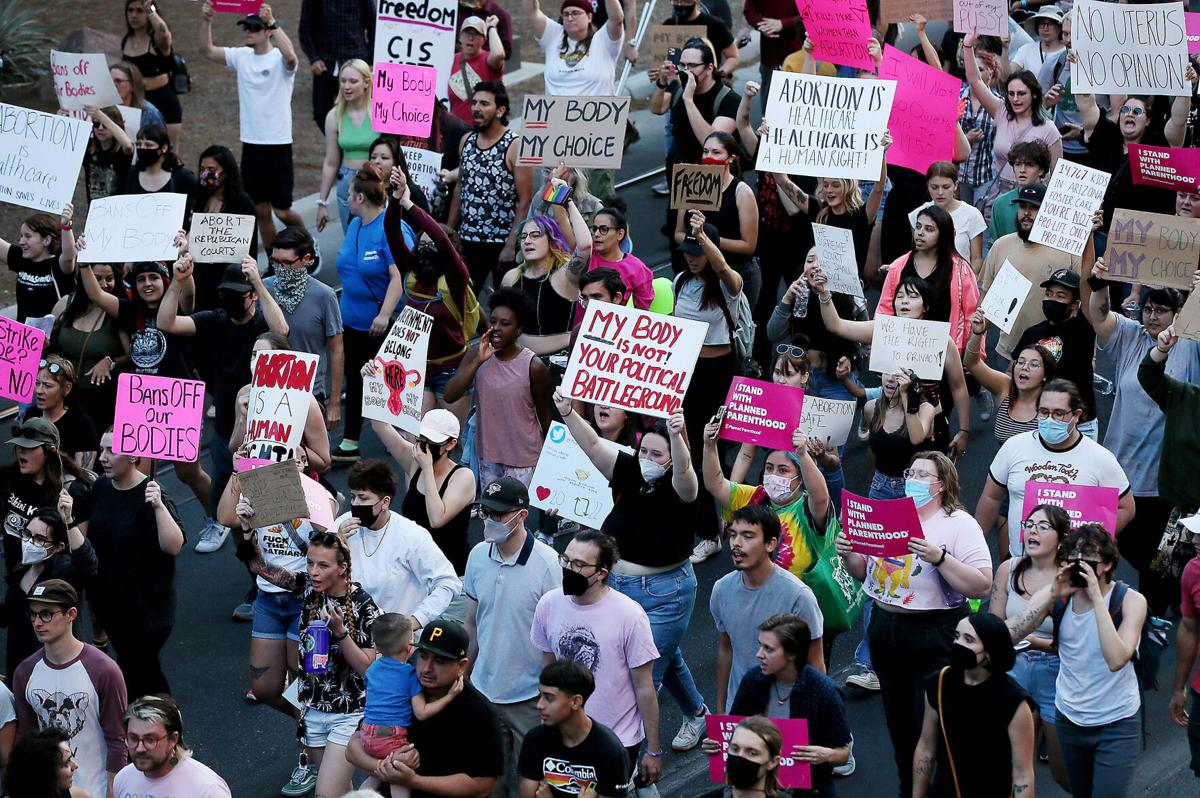A federal judge has blocked Arizona from using a year-old law requiring state laws to be interpreted to grant “personhood’’ rights to an unborn child, at least as it applies to abortion.
In a 17-page order, Judge Douglas Rayes said the statute is so vague that even he cannot tell exactly what it means — or how prosecutors might interpret it to bring charges against doctors who perform otherwise legal abortions.
And at least some forms of abortion remain legal in Arizona — and possibly most forms in Pima County, at least for the time being — despite the U.S. Supreme Court ruling overturning Roe v. Wade.
“The interpretation policy either does absolutely nothing, or it does something,’’ Rayes wrote in the ruling released late Monday.
“What that something might be is a mystery, or as (attorneys for the state) put it, ‘anyone’s guess,’ ‘’ he said. “And that is the problem.’’
He said the abortion doctors who brought the lawsuit as well as the Arizona Medical Association “should not have to guess’’ whether their actions will end up putting them in legal trouble.
Rayes specifically lashed out at a suggestion that Assistant Attorney General Kate Sawyer made during a court hearing Friday, that if doctors are unsure what the law means they should just hire a lawyer and seek a ruling by a state court judge.
“A law which requires such extraordinary effort to decipher fails to give ordinary people fair notice of the conduct it permits and proscribes,’’ Rayes said.
Jennifer Sklarsky, an attorney with the Center for Reproductive Rights, who argued the case for the doctors, praised Rayes in a statement for “blocking this law from being used to create an unthinkably extreme abortion ban.’’
But the Arizona Attorney General’s Office does not agree with the judge’s interpretation, said Brittni Thomason, press aide to Republican Attorney General Mark Brnovich.
“We are carefully considering our next steps,’’ she said in a prepared statement. “Our focus remains on bringing clarity to the law for Arizonans.’’
It is that lack of “clarity’’ in the provision that resulted in the ruling.
Approved last year as part of a larger abortion restriction, the law says that state laws “shall be interpreted and construed’’ to acknowledge that an unborn child “at every stage of development’’ has the same rights, privileges and immunities available to other citizens and residents of Arizona.
What makes that relevant is that Brnovich contends the U.S. Supreme Court ruling means the state can now enforce the law first passed in 1901 — before Arizona became a state — outlawing all abortions except to save the life of the mother. At the very least, that exception permits doctors to terminate a pregnancy in those situations.
Rayes said state laws “make it crystal clear’’ that someone performing an abortion is not committing murder.
The problem, he said, is that there is no such exception for other laws, such as assault, child endangerment and child abuse, “leaving abortion providers left to guess whether their conduct could be criminalized under a maximalist application of the interpretation policy.’’
As a result, Rayes said, two abortion providers named in the lawsuit said they have stopped performing the procedure altogether — including to save a patient’s life — because they can’t tell if they would be punished.
“In turn, this harms their patients, who are denied time-sensitive medical treatment,’’ the judge continued.
Moreover, Rayes pointed out that state law defines “unborn child’’ as the offspring of human beings from conception until birth, and then defines “conception’’ as the fusion of human sperm and egg.
He said standard medical texts equate conception with the implantation of a fertilized egg in the uterus, something that occurs about six days after fertilization. But he said the state’s definition of “conception’’ doesn’t mention implantation and therefore includes fertilized eggs that have not implanted — and may never implant — in the uterus.
“An ‘unborn child,’ it seems, can exist as a legal entity in Arizona even before a woman is considered pregnant from a medical standpoint,’’ Rayes wrote.
That definition also could have implications for legally acceptable forms of birth control.
The issue of abortion to save the life of the mother aside, there’s also the fact that the state Court of Appeals issued an injunction in 1973 blocking the attorney general and the Pima County Attorney’s Office from prosecuting anyone under the 1901 law. Brnovich has yet to ask for that injunction be dissolved.
The judge was unmoved by claims by Sawyer that the state is somehow harmed by his order.
“Defendants stand only to lose the ability to enforce an intolerably vague rule of statutory construction,’’ he said.
More to the point, Rayes said his injunction does not stop Arizona lawmakers from expanding the protection of the law to those not yet born.
“If Arizona wants to extend legal protections to the unborn — including, it seems, before medically recognized conception — nothing in this order precludes it from doing so clearly and explicitly,’’ he wrote.
That means amending existing laws of who is a “person’’ into each statute where lawmakers want that to be used “and by clearly and explicitly stating whether those applications exempt otherwise lawful abortion care.’’
During oral arguments on Friday, Sawyer said the “interpretation clause’’ might even be applied to probate law, which governs things like who is entitled to a share of an estate.





